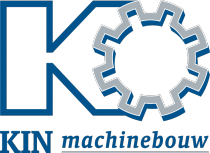IEEE Forms Committee to Develop a Certification Plan for Rapid Charging of Electric Vehicles and Approves Standard Revision on Dynamic DC Charging up to 400kW
IEEE, the world's largest technical professional organization dedicated to advancing technology for humanity, and the IEEE Standards Association (IEEE-SA), today announced the formation of the IEEE Electrical Vehicle Charging Conformity Assessment Steering Committee and the approval of the standard revision IEEE P2030.1.1™—Standard Technical Specifications of a DC Quick and Bi-directional Charger for Use with Electric Vehicles.
The initial automobile manufacturer members of the IEEE EVC CASC are Nissan Motor Company and Mitsubishi Motors Corporation. They are joined by the CHAdeMO Association, a developer of an independent standard included in IEEE P2030.1.1, and Tritium, an Australian manufacturer of fast DC electrical vehicle charging stations. Formed under the auspices of The IEEE Conformity Assessment Program (ICAP), EVC CASC aims to develop a certification scheme for accredited testing and conformity assessment to IEEE P2030.1.1, as well as other standards for DC rapid chargers used with electric vehicles. IEEE encourages broad participation from automobile, charger and connector manufacturers, test laboratories, the end-user community (utilities, cities, municipalities, asset owners), and regulators. To learn more about joining IEEE EVC CASC, please visit the associated ICAP Membership and Agreement web page.
“While there are many stakeholders engaged in the technological development of rapid DC chargers conforming to globally accepted standards, these efforts are especially important for electric vehicle manufacturers,” said David Patterson, EVC CASC chair and chief engineer, Mitsubishi Motors R&D of America. “To support the use of electric vehicles, manufacturers are taking a leading role ensuring technology and standard development efforts work to achieve seamless charging and driving experiences to satisfy electric vehicle owners.”
Approved by the IEEE-SA Standards Board in 2017 September, the IEEE P2030.1.1 standard revision is being undertaken by the newly formed Working Group for Creating Technical Specifications of Quick Charger for Electric Vehicles Standards. Technical amendments to the standard will cover bi-directional charging (V2X), ultra-rapid charging up to 400kW, and CHAdeMO v1.2 and soon to be published v2.0 requirements. For more information, or to get involved, visit the Working Group for Creating Technical Specifications of Quick Charger for Electric Vehicles Standards web page.
To learn more about IEEE-SA, visit us on Facebook, follow us on Twitter, connect with us on LinkedIn or on the Beyond Standards Blog.
About the IEEE Standards Association
The IEEE Standards Association, a globally recognized standards-setting body within IEEE, develops consensus standards through an open process that engages industry and brings together a broad stakeholder community. IEEE standards set specifications and best practices based on current scientific and technological knowledge. The IEEE-SA has a portfolio of over 1,200 active standards and over 650 standards under development. For more information visit http://standards.ieee.org.
About the IEEE Conformity Assessment Program
The IEEE Conformity Assessment Program (“ICAP”)—an initiative of the IEEE-SA (http://standards.ieee.org/)—provides programs and industry support that help bridge those standards development activities with the conformity assessment activities that accelerate market acceptance and enablement of new products and technologies. The foundation of ICAP activities is based on industry best practices, internationally accepted quality systems and use of proven test tools.
About IEEE
IEEE is the largest technical professional organization dedicated to advancing technology for the benefit of humanity. Through its highly cited publications, conferences, technology standards, and professional and educational activities, IEEE is the trusted voice in a wide variety of areas ranging from aerospace systems, computers, and telecommunications to biomedical engineering, electric power, and consumer electronics. Learn more at http://www.ieee.org.
View source version on businesswire.com: http://www.businesswire.com/news/home/20171128005135/en/




